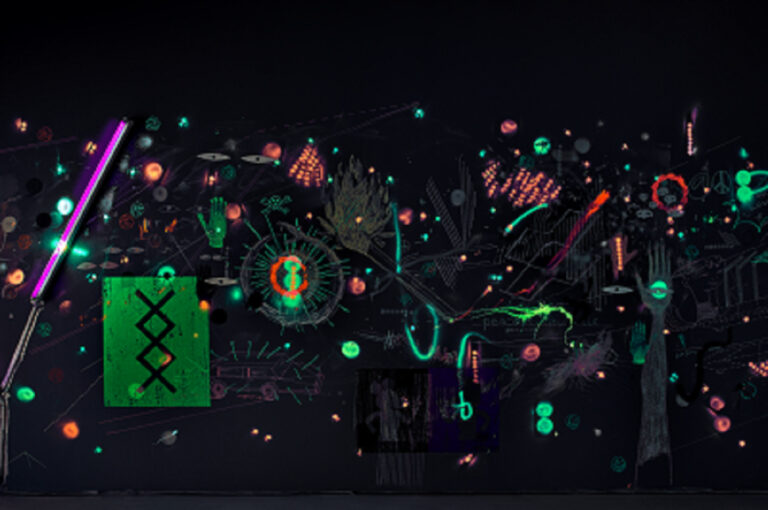This collaborative essay takes up three pungent streams of wastewater to address how environments, politics, communities, and power are mediated by liquid waste: urine, feces, and everything else recklessly flushed down toilets, washed down drains, stored in pits, and dumped in the ocean. “Wasted” looks to the multi-scalar worlds of wastewater by centering waste sites and COVID-19 concerns regarding wastewater virality. First, our tour of Santa Barbara’s El Estero Water Resource Center brings us to the variegated, embodied, multi-sensory, and multispecies communities of wastewater. El Estero provides an odoriferous infrastructural current through which we follow wastewater and the socialites and environments it mediates on California’s Central Coast. We then move to the ways wastewater has been interwoven with global pandemic fears to address how human waste retains infectious COVID-19 viral material even after it has been flushed away. COVID-19, in other words, haunts the infrastructural ports through which wastewater is funneled. We conclude with wastewater’s epochal effects within the Anthropocene. Throughout, we offer the term “hygiene theatrics” to identify how the performance of hygiene, cleanliness, and purity rely on dichotomous constructions of dirtiness and cleanliness that reinforce structural power dynamics including racism and homophobia. “Wasted” is a collaborative feminist and queer experiment in form and methodology that explores wastewater as both a material reality and a theoretical apparatus that is informed by and contributes to the environmental humanities, infrastructure studies, and feminist and queer science studies.
Keyword: COVID-19
Editors’ Introduction: Materializing Immaterial Labor in Cultural Studies
This introduction frames the six original articles in this issue and the forum on “Corona A(e)ffects: Radical Affectivities of Dissent and Hope” around the concept of immaterial labor. Two full years into a pandemic that has uprooted place-based work for many, and forced even more indoors, away from public spaces, and onto screens, we reflect on the very material effects of present-day immaterial and emotional labor.
Coronavirus Pedagogy in the Zoomscape: Pinhole Intimacy Culture Meets Conscientization
The COVID-19 pandemic emptied universities, colleges, and schools across the United States in March 2020, forcing instructors into an unavoidable culture in which a networked commercial technology mediated teaching and learning. In the tradition of critical pedagogy, this article argues that students and instructors alike engaged through the artificial lenses and screens of Zoom. The “pinhole intimacy” of the Zoomscape is assessed using conscientization, the concept offered by the Brazilian educator Paulo Freire, to describe most pedagogy as an oppressive apparatus that can be overcome with direct engagement between students and instructors. In such an opticentric context, the Zoomosphere’s intimacy is used to explore how the emancipation proposed by conscientization might be applied to the culture of pedagogy in a college with a diverse student population, including pedagogical interventions to address the challenges associated with teaching Division I athletes. The context of a large communication department at Boston College provides the empirical foundation for the exploration of coronavirus pedagogy.
Introduction—Corona A(e)ffects: Radical Affectivities of Dissent and Hope
Right from the emergence of the ongoing COVID-19 pandemic, national governments and international institutions have been relentlessly qualifying it as an “unprecedented” event. We have been told that the virus sees no color or class and that equal sacrifices from each one of us are and continue to be necessary to contain its spread. We have been instructed to look at the virus in scientific, neutral terms as if we had equal chances of being affected by it—as if its routes, that is, did not follow the roots of sedimented histories of oppression, exploitation, dispossession, and structural violence. This forum departs from such narratives to look at how the current COVID-19 pandemic intersects with other pre-existing and enduring pandemics, such as those produced by racism, capitalism, and speciesism. In building on the emerging critiques by Indigenous, feminist, Black, and queer academics, movements, and activists, the contributions it hosts offer multimedia reflections on affects triggered or evoked by the current pandemic, such as rage, fear, despair, restraint, care, and hope. Coming from different parts of the globe and disciplinary approaches, authors convey the “Corona(virus) a(e)ffects” in multisensorial ways, combining written essays, poetry, videos, and photographs. By contextualizing the ongoing COVID-19 pandemic within a historical legacy of structural violence within and across species, this forum moves beyond deceitfully single-focus and temporally flat narrations. In so doing, it provides a space for the expression of radical affectivities of dissent and hope that its outburst has arguably made only more visible and pressing.
Within and Against Racial Segregation: Notes from Italy’s Encampment Archipelago
The pandemic brought migrant farm workers into the limelight once again, as has happened repeatedly in the last three decades, in Italy as in many other parts of the world. Here I examine how intersecting and sometimes conflicting discourses and interventions, that have this biopolitically conceived population as their object, decide upon these subjects’ worthiness of attention, care, and sympathy through criminalizing, victimizing, and humanitarian registers. I reflect on some of the affective dynamics that sustain both the governmental operations through which these populations were (sought to be) managed and reactions against them from a situated perspective, as an accomplice to many of the forms of struggle in which migrant farm workers have engaged in the last decade in Italy. The stage for many such occurrences is what I have elsewhere defined as the “encampment archipelago” that many such workers, and particularly those who migrate from across West Africa, inhabit—labor or asylum-seeker camps, but also slums or isolated, derelict buildings, and various hybrid, in-between spaces among which people circulate.




